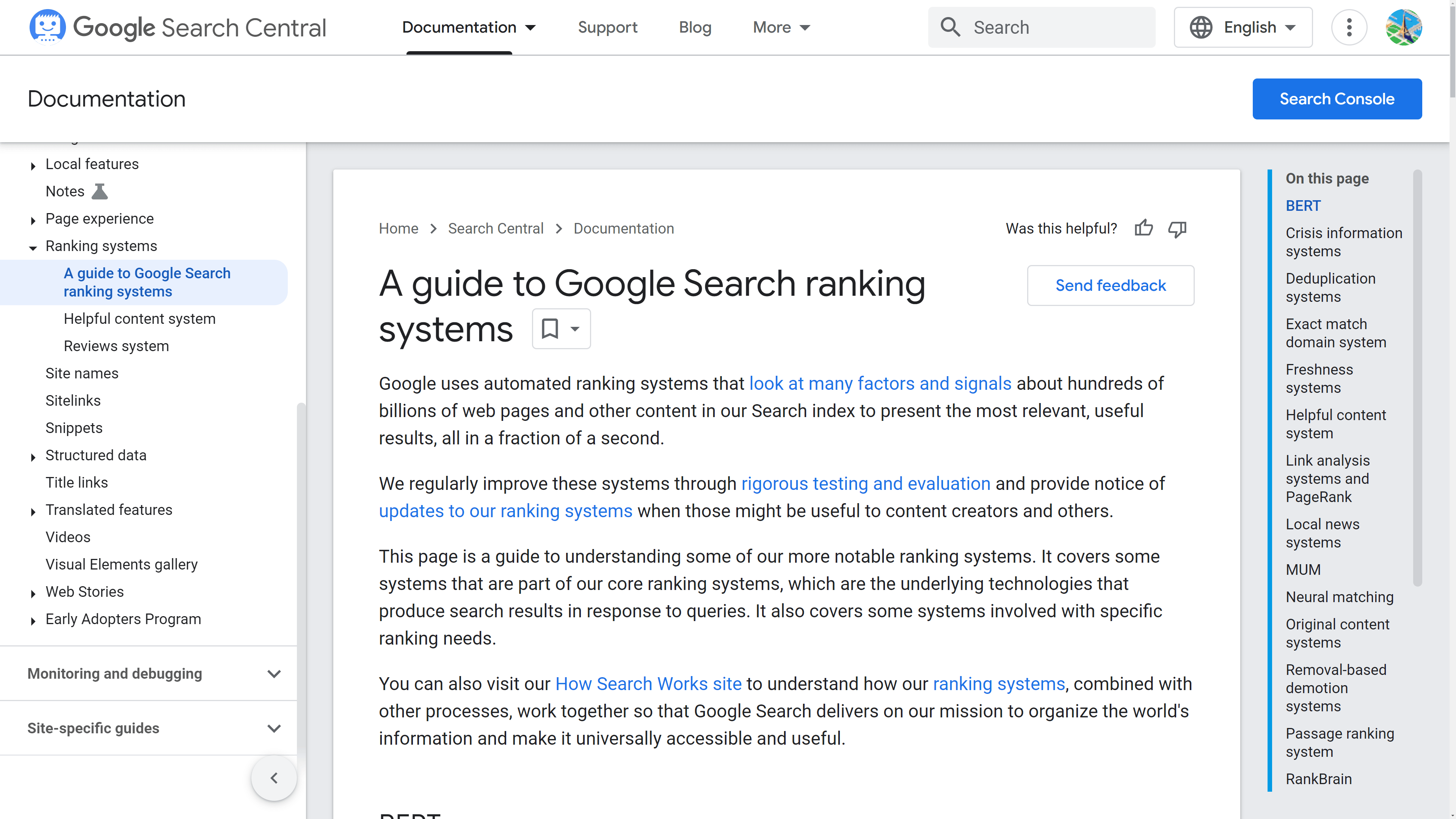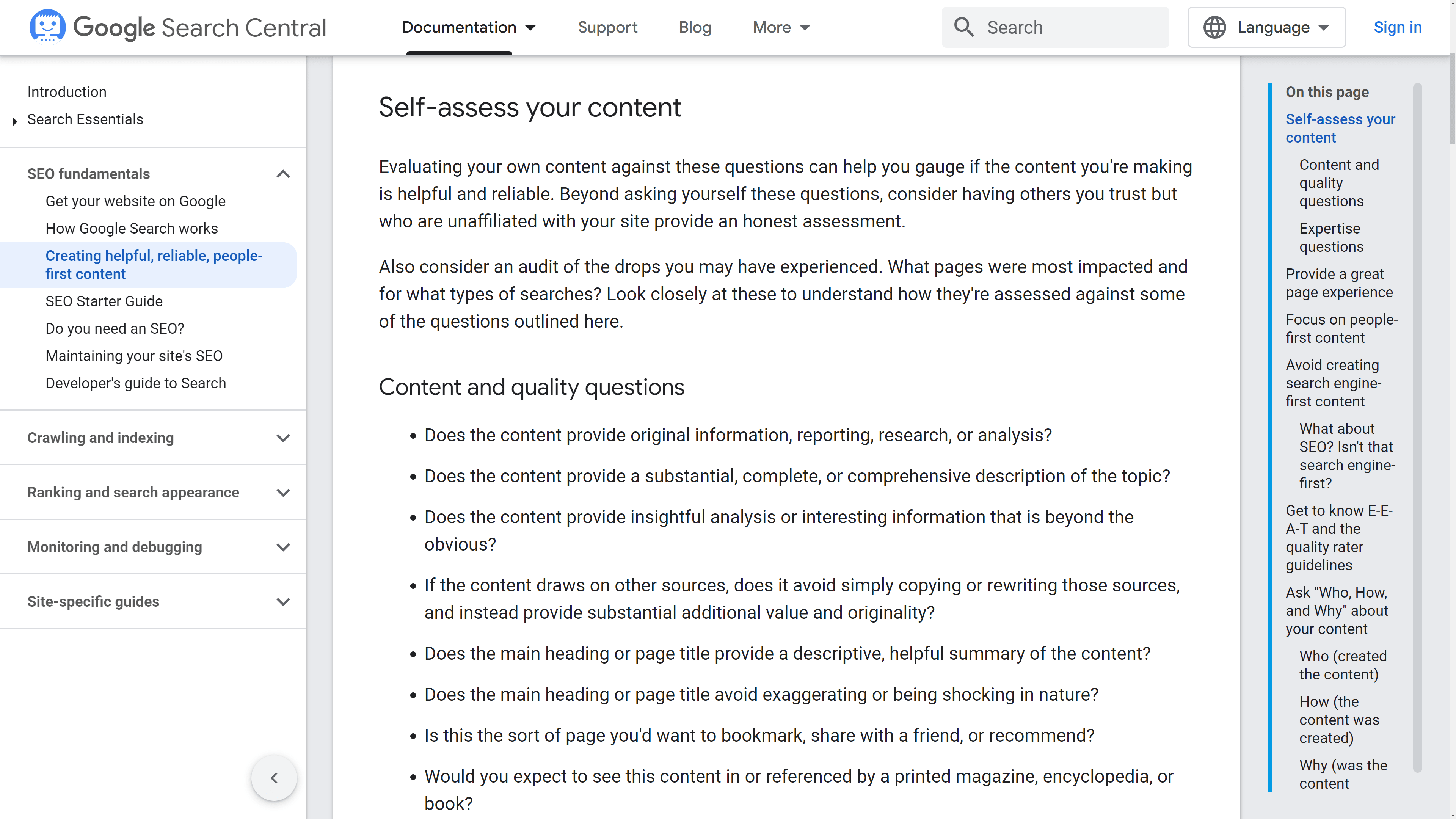If you have noticed that your site has dropped or disappeared from Google search results, you may believe that you have been impacted by an update to Google’s algorithms. You may have noticed this simply by searching in Google for your keywords or thanks to rank tracking software like SEOPress Insights that has indicated that your site has lost ranking from one day to the next.
Before concluding that an update to Google’s algorithm is the root cause of your ranking changes, you may need to eliminate the possibility that you have indexing problems or that major changes to your site have negatively impacted ranking.
What a Google update could mean for your SEO
Ranking in Google is performed every time a user searches with a query and over 100 signals can be used to evaluate pages and rank them in organic results. Scores and ranking are calculated using mathematical algorithms and Google is regularly updating these algorithms to improve search results. It does not communicate on all the changes it makes to ranking systems and some ranking systems remain secret, but it has recently created extensive documentation on systems and updates in Google Search Central (not to be confused with Google Search Console).

During a major update to Google ranking systems, results in search engine results can change dramatically. There will be winners, who move up results, and losers, who move down results. By regularly working on your search engine optimization and following Google’s best practices, you should hope to be a winner every time, but unfortunately this is not always true.
This said, it is much more likely for sites that do not respect Google’s best practices to drop in ranking during a Google update than it is for sites who put in a regular effort to optimize their SEO.
Download our Ebook “SEO Success for WordPress with a Two-Hours-a-Week Routine”
Keeping up to date with Google updates
If you run a website, it is important to keep informed about Google updates. Google provides a dashboard of changes to Google Search that indicates when updates were launched and how long it took them to roll out. The What’s new on Google Search Central page is also a useful as is the SEO News section of the SEOPress blog which gives a monthly round up of Google news including all official updates and suspected unofficial ones.
On X (formerly Twitter), you can follow Google Search Central on @googlesearchc and Google Search Liaison on @searchliaison (the latter is also active on Mastodon, Threads and Bluesky). These social media accounts are good for information on updates and it is also possible to solicit answers for update-related issues.
The launch and end dates of updates are important because if you can correlate the dates when you lost ranking (as shown in SEOPress Insights for example) with the roll-out dates of a Google update, then you can deduce that this specific update caused the problem. The screen shot below shows a keyword losing ranking dramatically in April 2023, checking with our April Google News we see that this may correlate with the April 2023 Review Update that marked the expansion of this new ranking system to new languages.

How to react to different types of updates
Bear in mind that correlation between ranking drops and the dates of ranking updates do not mean causality. There is just an increased possibility that changes happening during this period are caused by the update.
A frequent and certainly a wise recommendation from many SEO experts is not to react to ranking changes while a Google Update is rolling out. Search results may be volatile during a roll-out, your site may be going up and going down every day. It is only once an update has finished rolling out (and possible a few days after) that results will settle, and you can really know if you have been “hit” by the update. Some experts also suggest that Google detects websites that make major changes during updates to punish them even further!
Once you have a good idea of what type of update affected your ranking, here is a quick guide on how to react in each case.
How to recover from a Google Core Update
Google uses the term “core” to refer to the major systems that are at the heart of ranking. These are believed to include PageRank, site quality and automatic scoring relating to E-E-A-T (Experience, Expertise, Authoritativeness, and Trustworthiness).
Core updates are introduced at regular intervals (usually every three months) and are believed to involve recalculating scores for important numbers of sites and pages.
Sites that dramatically lose positions in search results after a Core Update can imagine that for some reason Google has lost confidence in their site. The reasons for this could be the loss of important links, changes to the status of the organization behind the website or changes to pages about the organization and authors. It can also be caused by inaccurate, out-of-date or low-quality content on the website.
The first thing to check after ranking losses is to assure that someone visiting the website can easily identify the organization behind it (not having legal notices or setting legal notice pages to nofollow can cause ranking drops after a Core Update). Check our article on Optimizing WordPress sites for Google EAT for many good hints on approving your site on these points. Also review content on the website to make sure that it is not inaccurate or low-quality.
Unfortunately, once you have found and detected potential problems on your site, you must wait for the next Core Update for it to be reevaluated by Google and improve ranking.
Recovering from a Spam Update
Google has systems working to detect spam 24/7, but it will sometimes announce major updates to these systems, and these will have an impact to ranking during their roll-out and then over time.
If your site drops in ranking during a Spam Update, the first important step is to determine if the update was related to content or links. This information is often shared in posts on X from Google or on the Google Search Central blog.
Once you have this information, you then need to honestly assess whether you have been deliberately spamming Google with links or content. You can review Google’s Spam Policies and see if you have violated some of them. Cases of false positives are very rare, but some forms of spam may have been done accidentally or without the full knowledge of website owners.
Being hit by a spam update may mean that your site has an automatic penalty, demoting or removing it from search results. To get back to a fairer ranking, you should attempt to remove spammy content or links and hope that Google will lift the penalty. Unlike manual actions, you cannot request a review.
Recovering from a Helpful Content Update
Helpful Content is a new system from Google that uses AI to detect unhelpful content. It is described in by Google in the document Google Search’s helpful content system and your website. This system does not directly target AI-generated text and images, but it is one of the ways Google can fight the increasing quantity of content published on sites using AI.
Pages that are considered unhelpful can drop in ranking and sites that have too many unhelpful pages may have a penalty that will demote all pages on the site in search results, even if these pages are not considered unhelpful.
Unhelpful content is probably synonymous with over-optimized content from an SEO perspective. Following SEO recommendations, articles may be too long-winded. In giving recommendations on recovering from the December 2022 Helpful Content Update, Marie Haynes said, “A searcher who has asked, ‘how do I fix my lawn mower’ does not need to be taught “what is a lawn mower”. Comprehensive content can be a good thing. But it is not always the most helpful thing. Google wants to show searchers content that is relevant and helpful.”
To recover from a Helpful Content Update (also called HCU) you need to review your content thoroughly and have conversations about content producers on how they produce content (are they using AI?). The checklist provided by Google may help you evaluate your content from Google’s perspective. Fix or remove content that you think is considered unhelpful.

Sites hit by a helpful content penalty may not lose the penalty for several months even if they do correct problems quickly. This is because this signal is not recalculated very often for many sites.
Getting professional help
Google Update recovery is a specialist service in SEO. Not all SEO consultants can help with this.
If you do look for professional help, look for a proven track record in recovery for other clients.



